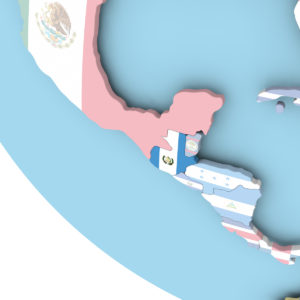When Guatemalan President Jimmy Morales attempted to expel a U.N. anti-corruption group last month, he set off a political crisis that has garnered significant media attention in the United States. However, an issue that poses a far greater threat to the country’s stability has gone under the radar: repeated attempts by activists to close the country’s largest mining operation and endanger thousands of Guatemalan jobs.
For two months during the summer, the Supreme Court of Guatemala suspended operations at the country’s Escobal mine in response to a lawsuit by anti-mining activists who are seeking to shut down the mine. Closing the mine would jeopardize thousands of jobs and risk undermining the significant foreign investment that is not only the backbone of Guatemala’s economic future but also represents a vital U.S. interest in the region.
On July 5, the Supreme Court of Guatemala issued a provisional decision to stop operations at the mine. The court ruled in favor of anti-mining activist organization CALAS in a lawsuit claiming that the Ministry of Energy and Mines had not required consultations with the Xinca indigenous community before issuing the mining permit. The Escobal mine is in an area that is 98.6 percent non-indigenous, with no Xinca presence, according to the most recent Guatemalan census.
The economic importance of the Escobal mine in San Rafael cannot be understated. It is one of the largest silver mines in the world, and provides more than 7,600 jobs, directly and indirectly, in the region. The mine has infused more than $1 billion into the country’s economy through wages, taxes, direct funding, sustainability initiatives and community services.
Foreign investment in projects like Escobal have given Guatemala the resources to address its destabilizing forces, providing the country with much-needed tax revenue for basic infrastructure services while helping to reduce emigration and lessen the grip of gangs and drugs on the country’s youth.
The suspension of Escobal was not an isolated incident. Earlier in the year, the Constitutional Court ordered the suspension of the operations of hydroelectric plants and extractive industries.
In response to these actions, the president of the American Chamber of Commerce in Guatemala, Juan Pablo Carrasco, observed at the time that Guatemala was “in a period of radical ideological movements by social-conflict groups, with distortions and open opposition to any investment project, that do not show they legitimately or democratically represent the communities.”
Stable jobs and economic prospects are crucial in a society that struggles to provide gainful employment to its citizenry and where illicit lifestyles often are more rewarding to young people. Eliminating this opportunity is a self-inflicted wound.
This type of legal action against Escobal sends the message that the investment environment in Guatemala is unpredictable and unstable. The U.S. State Department has identified mining as one of the activities that is most attractive to foreign investors, making the decision to halt work at Escobal even more troubling for Guatemala’s future ability to entice outside investment.
Carrasco was already seeing the destabilizing effects of activists’ actions, noting that the shutting down of important industries and projects “has led to vandalism, damages, disturbances, illegal seizure of private property and loss of life that puts the safety of citizens and the development of the country at risk.”
Over the past few decades, countries like Chile have demonstrated the benefits of openness to foreign investment as a catalyst for economic and institutional development. If Guatemala wants to break free from the shackles of underdevelopment, it should be following Chile’s lead.
For a country that is struggling to recover from decades of violence that destroyed the local economy, economic development must be the government’s number-one priority.
The United States should be doing everything it can to pressure the Guatemalan government to support the continued operation of the Escobal mine, as an unstable Guatemala is bad for the region and bad for the United States.

